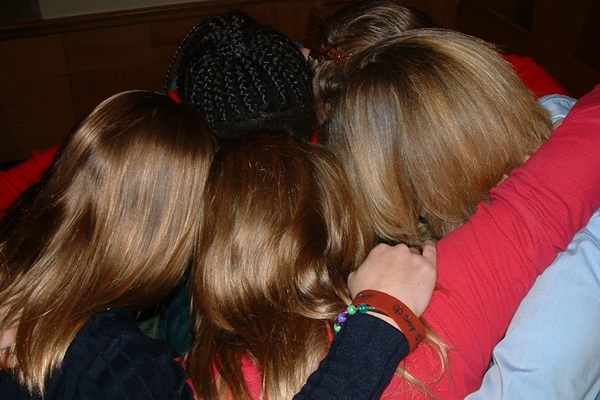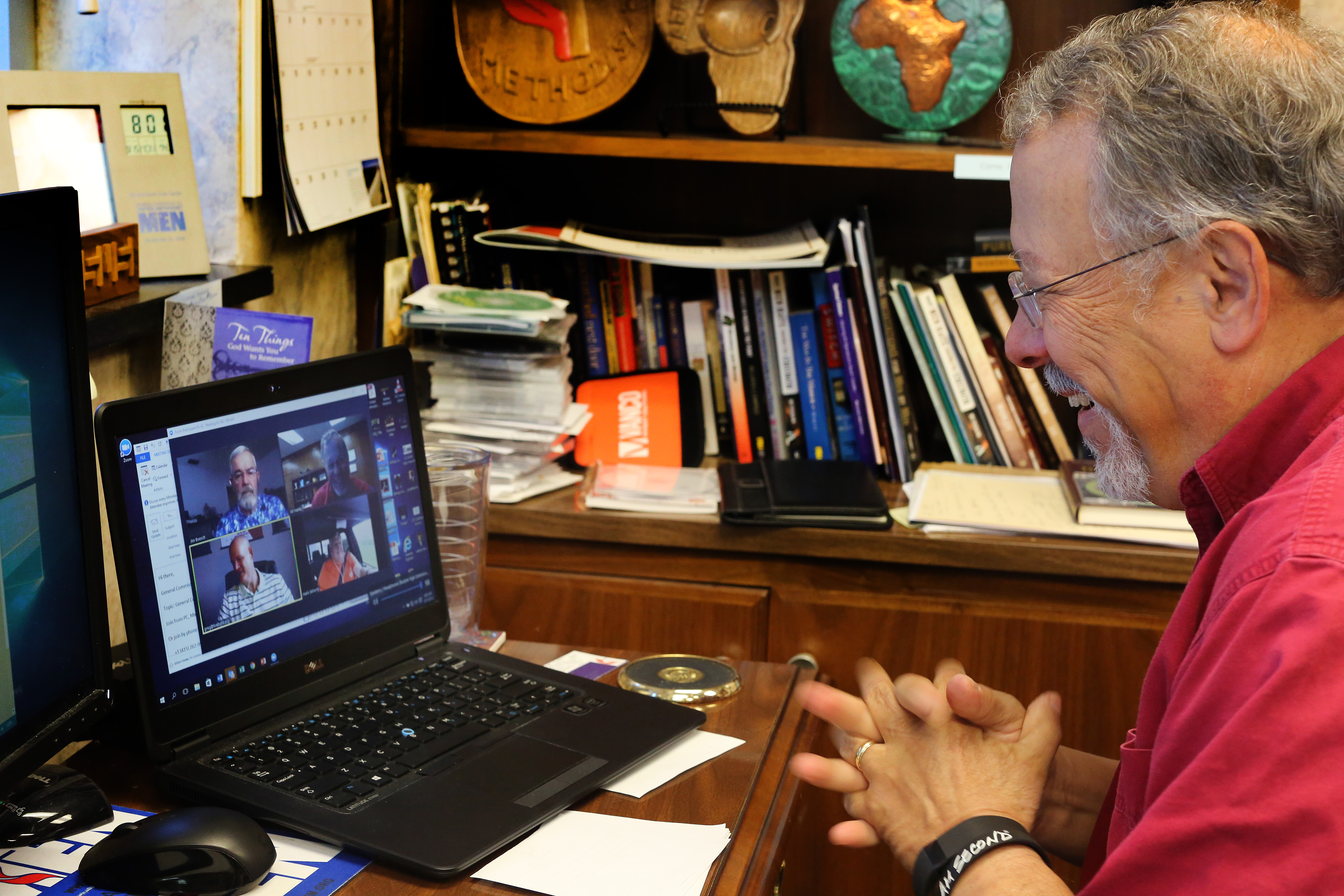Part 3 of a 3-part series on disciple making yesterday and today. (Part 1 | Part 2)
The mission of The United Methodist Church is “to make disciples of Jesus Christ for the transformation of the world. Local churches provide the most significant arena through which disciple-making occurs” (2016 Book of Discipline ¶120). This focus on disciple making influenced the early Methodist movement, and continues to shape our ministries today.
Church resources
Discipleship Ministries has published a series of books to help churches re-tradition class leaders and classes for today.

A series of resources on Covenant Discipleship with children, youth, and adults is available from Discipleship Resources. Photo art by Joe Iovino, United Methodist Communications.
The Rev. Steven Manskar, who served as Director of Wesleyan Leadership with Discipleship Ministries of The United Methodist Church, is the author of Disciples Making Disciples: A Guide for Covenant Discipleship Groups and Class Leaders. In a 2016 episode of UMC.org’s podcast Get Your Spirit in Shape, Manskar described Covenant Discipleship Groups as “a way for anyone who’s ready to be accountable for their discipleship, to meet once a week for one hour to give an account of how they’ve lived as a disciple of Jesus Christ.”
During initial meetings, the group of six or seven adults writes a covenant shaped by The General Rule of Discipleship. Group members agree to clauses that describe specific practices in each of the four areas of justice, compassion, worship, and devotion. These serve as a means of living out the General Rule in their everyday lives (see part 2 of this story).
During weekly group meetings, members take turns giving their account of what they have done and not done with each of the clauses. For example, a Covenant Discipleship Group might agree to one of their justice clauses being that they will speak up for the homeless in their area. A member then might report how when a conversation in their office turned to the “problem” of the poor, he remained silent, or she shared her belief that Jesus called us to care for the poor among us with dignity and respect.
This practice of weekly accountability for one's discipleship helps one another grow in holiness of heart and life, and forms disciples who make disciples. Covenant Discipleship groups provide the leaders in discipleship congregations need for the mission of making disciples of Jesus Christ for the transformation of the world.
With some adaptation, Covenant Discipleship Groups are also a wonderful opportunity for children and youth.
The Rev. Steve Manskar (r) and the Rev. Phil Meadows were two of the teachers on the 2016 Wesley Pilgrimage in England. Photo by Kathleen Barry, United Methodist Communications.
Melanie C. Gordon, who served as Discipleship Ministries Director of Ministry with Children. co-authored Growing Everyday Disciples: Covenant Discipleship with Children with Susan Groseclose and Gayle Quay.
“Children’s Covenant Discipleship Groups are effective for children approximately third through sixth grade,” approximately eight to twelve years old, Gordon reports.
They also write a covenant together, which can be a challenging task. Gordon’s book offers tips on “how to do that without your hair curling,” she says through laughter.
At their meetings, children “have some time to sing and pray at the beginning when they gather,” Gordon continues. They then have “what we’re calling ‘compassion time’—time to talk about how [they have] shown compassion in the past week or not shown compassion in the past week.” They also talk about their experiences with worship and devotion.
“The justice piece comes in when they either have someone come in and talk about what’s going on in their community [or] as a group they go out and they do something to speak for those who cannot speak for themselves.”
Through the groups, Gordon explains, children “are learning ways to be in relationship with God and with others.”
Chris Wilterdink, Discipleship Ministries Director of US Program Development for Young People’s Ministries and author of Everyday Disciples: Covenant Discipleship with Youth, sees similar value in Covenant Discipleship with teenagers and young adults.
“Covenant Discipleship with youth involves getting small groups of youth together that would like to live into the same commitment and are willing to regularly check in with each other,” Wilterdink explains. With youth, those “check-ins” may happen online using social media, messaging apps, and other ways youth communicate with one another.
With guidance from caring adults, youth learn to remain focused on the covenant they write together, and lovingly hold one another accountable for their spiritual growth.
Wilterdink says that spending this quality time together “can really break down some of the natural barriers” youth experience in other areas of their lives.
Another benefit Wilterdink sees for youth is that, “Covenant Discipleship really breaks down loving God and loving neighbor into some very specific ideas of what we can do.” Developmentally, youth are assessing what from their childhood they will bring along with them into adulthood.
“Having those conversations while doing actions related to faith development,” he explains, “is a very powerful testament, and you do it in an everyday way.”
Gil Hanke, top staff executive of United Methodist Men, uses computer technology to connect to one of his weekly small groups. Photo by Kathleen Barry, United Methodist Communications.
For the benefit of all
Becoming everyday disciples who pursue holiness of heart and life, who long to have the universal love of God filling our hearts and governing our lives, was the historic goal of the Methodist movement, and continues to be the objective of United Methodists today.
Like many other areas of life, we know that we grow best when we share the journey with others with the same goals. Wesley formed Societies and Classes to help the early Methodists live as disciples of Jesus Christ. Today, Covenant Discipleship Groups help form the leaders in discipleship our congregations need for their mission of equipping members to join Christ and his mission in the world.
All of this formation happens as part of a group, so we are not simply recipients of holiness, we are also helping others as they love God with all their heart, soul, and mind and love who God loves, as God loves them.
Together we reach out in love and service to the world. Together we help the church live out its mission in the world. Together we worship and celebrate the sacraments. Together we are transformed into disciples of Jesus Christ who participate in God’s work of transforming the world.
Learn more about Covenant Discipleship Groups and the office of the Class Leader from Discipleship Ministries.
Editorial note: This story was first published on October 9, 2016.
Joe Iovino works for UMC.org at United Methodist Communications. Contact him by email.







